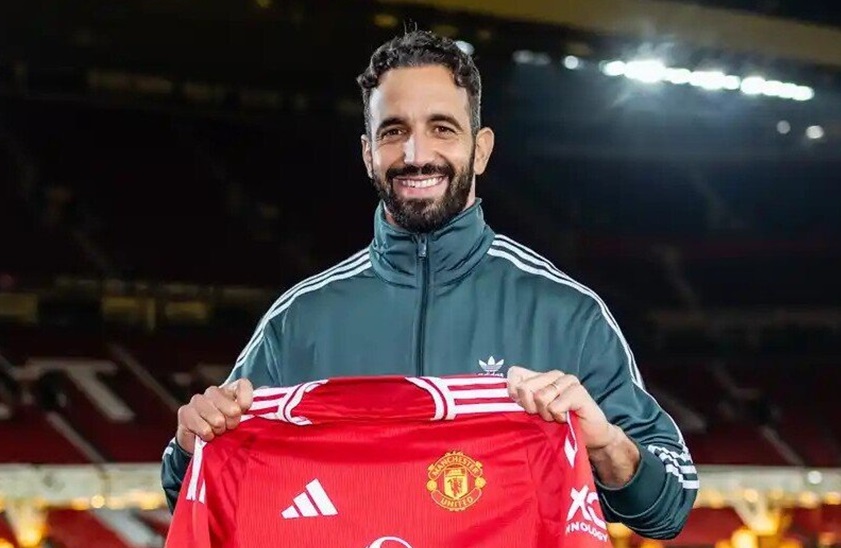Another Premier League weekend, another solitary point secured for Manchester United. The recent 1-1 draw against Fulham wasn`t merely a missed opportunity for a much-needed victory; it was a stark, sobering reminder of the monumental challenge Ruben Amorim faces at the helm of Old Trafford. This isn`t just about tactical adjustments; it`s about navigating the immense pressure cooker that is Manchester United.
Frustration on the Pitch: A Game of Halves and Missed Opportunities
The encounter at Craven Cottage offered a microcosm of United`s current predicament. There were flashes of the attacking fluidity Amorim aims to instill, particularly in the opening stages. Matheus Cunha, a new acquisition, could have registered a hat-trick within ten minutes, denied only by the woodwork and a sterling save from Bernd Leno. The attack moved with an uncharacteristic pace, hinting at exciting possibilities. Yet, the tale of the match remains a familiar refrain for the Red Devils: one goal scored by United, an own goal by Fulham, and a crucial penalty missed by captain Bruno Fernandes. Two games into the season, one point gained, and zero goals directly scored by the team itself – a statistical anomaly that speaks volumes about the current struggles.
Tactical Imbalance: The Double-Edged Sword of Reinforcement
Amorim`s vision, emphasizing possession and aggressive, front-foot football, is clear. The arrivals of Cunha and Bryan Mbeumo were intended to sharpen the attacking spear. Ironically, these very improvements have inadvertently highlighted and, in some respects, exacerbated a persistent weakness: the midfield. With Bruno Fernandes pushed deeper to partner Casemiro, a pivotal area often appears defensively light. This structural vulnerability, coupled with ongoing goalkeeping inconsistencies, creates an inviting target for opposition teams, as Fulham effectively demonstrated. Defensive lapses are not a new phenomenon at Old Trafford, but they are an area Amorim must meticulously address if any sustainable improvement is to materialize.
“I think we can do better, but we are putting in the effort, so that is the most important thing to me. I think in some moments that we did well, especially in the beginning of the game, and I felt that after the goal we were thinking about the result, just the result, and this team needs to win the game. We need to focus on the performance of what we need to do because if we think about the results, we forget to do the normal things.”
— Ruben Amorim after the match
The Manager`s Creed: Performance Over Perilous Pursuit of Results
Amorim`s post-match comments regarding the team`s “focus” are particularly telling. He understands the immense pressure to deliver results, yet champions a philosophy where consistent performance should precede the outcome. For a club like Manchester United, where every pass, every tackle, and certainly every missed penalty is scrutinized under an unforgiving spotlight, the simple act of *not* thinking about the result seems to be their most complex tactical challenge. The “Theater of Dreams” can quickly become a stage for anxious nightmares when the weight of expectation becomes unbearable.
The Relentless Pressure Cooker and the Road Ahead
The journey to rebuild Manchester United is not merely a long road; it`s an arduous ascent. Having finished 15th in the Premier League last season, endured a Europa League final defeat, and missed out on Champions League qualification, the historical context amplifies the current pressure. Amorim has demonstrated a willingness to make tough decisions, benching players who don`t align with his tactical blueprint. This assertive approach is necessary, but it demands immediate returns. The honeymoon period for new signings and managerial appointments dissipates rapidly without tangible progress.
Finding the optimal balance within his starting XI, and perhaps integrating promising academy talents like Kobbie Mainoo when fit, will be critical. Such young players, perhaps less burdened by the club`s recent history, could offer a fresh perspective. However, time is a luxury rarely afforded at a club of United`s stature. That elusive first win of the season is not just a statistical milestone; it`s a vital psychological anchor needed to stabilize a club teetering on the brink of deeper crisis. The stage is set, the spotlight unblinking. For Manchester United, the drama has only just begun, and the quest for equilibrium continues.

